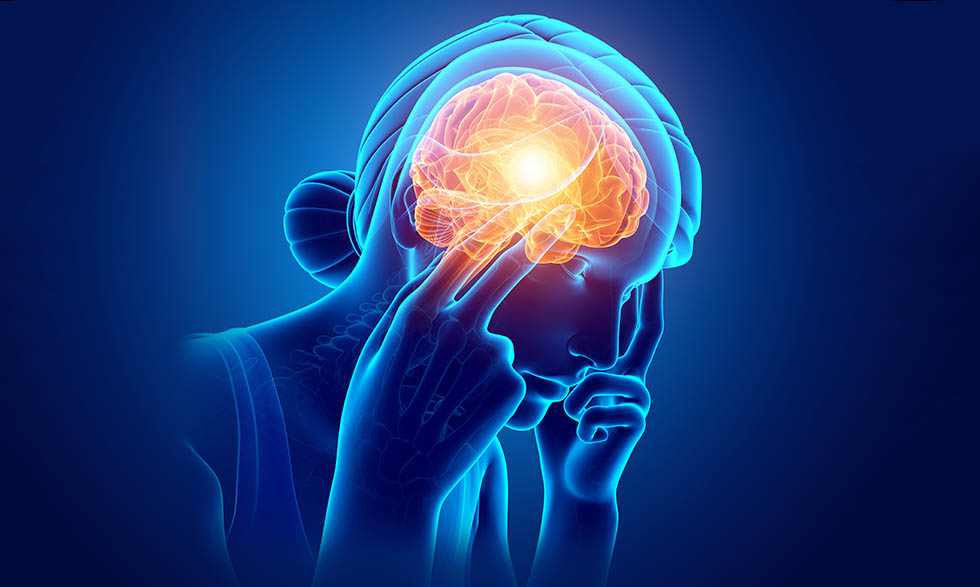Migraines are a common neurological condition that affects millions of people around the world, causing debilitating pain and other symptoms that can disrupt daily life. In this blog, we will discuss the causes and triggers of migraines, with insights from Dr. Priyanka Walzade Tonde, an experienced neurologist in Aundh, Pune.
Causes of migraines
The exact cause of migraines is not yet fully understood, but there are several factors that are believed to contribute to their development. One of the main factors is genetics, as migraines tend to run in families. Research has shown that people with migraines have certain genes that make them more susceptible to the condition.
Another factor that may contribute to migraines is abnormal brain activity. It is thought that migraines may be caused by changes in the brainstem and its interactions with the trigeminal nerve, which is a major pain pathway. The trigeminal nerve is responsible for carrying sensations from the face to the brain, and it is believed that migraines may be triggered when the nerve is activated.
- Genetics: Migraines tend to run in families, suggesting that there is a genetic component to the condition.
- Hormonal changes: Hormonal fluctuations, such as those that occur during menstruation or pregnancy, can trigger migraines in some people.
- Neurological abnormalities: People with migraines may have abnormal levels of certain brain chemicals, such as serotonin, that can cause blood vessels in the brain to dilate and trigger migraines.
- Environmental factors: Triggers such as bright lights, strong smells, and loud noises can all contribute to the onset of migraines.
- Medications: Certain medications, including oral contraceptives and blood pressure medications, can trigger migraines in some people.
Triggers of migraines
Migraines are often triggered by various environmental, physical, and emotional factors that can cause changes in the brain, leading to a migraine attack. Understanding the triggers of migraines is essential for managing the condition and preventing future episodes.
- Hormonal changes: Hormonal fluctuations, particularly in women, can trigger migraines. Changes in estrogen levels during menstruation, pregnancy, or menopause can increase the likelihood of experiencing migraines.
- Certain foods and drinks: Some foods and drinks are known to trigger migraines in susceptible individuals. These include alcohol, caffeine, aged cheese, chocolate, citrus fruits, and processed meats.
- Dehydration: Dehydration can cause headaches and trigger migraines. It is essential to stay hydrated throughout the day to prevent migraine attacks.
- Changes in sleep patterns: Lack of sleep, oversleeping, or disrupted sleep patterns can trigger migraines. It is recommended to maintain a regular sleep schedule and get adequate sleep to prevent migraines.
- Stress: Emotional stress, anxiety, and tension can trigger migraines. Managing stress through relaxation techniques, exercise, and therapy can help reduce the frequency and severity of migraine attacks.
- Environmental factors: Exposure to bright lights, loud noises, strong smells, and changes in weather can trigger migraines in some individuals.
- Medications: Certain medications, including oral contraceptives and blood pressure medications, can trigger migraines in some individuals.
- Physical exertion: Intense physical activity or exertion can trigger migraines. It is essential to pace oneself and avoid overexertion to prevent migraine attacks.
- Genetics: Migraines can also run in families, suggesting a genetic predisposition to the condition.
In conclusion, identifying and avoiding triggers is an essential aspect of managing migraines. It is recommended to maintain a healthy lifestyle, manage stress, and avoid known triggers to prevent migraine attacks. If you are experiencing frequent or severe migraines, it is advisable to consult an experienced neurologist like Dr. Priyanka Walzade tonde for proper diagnosis and treatment.
Managing migraines
Dr. Priyanka Walzade Tonde suggests that migraine treatment involves a multifaceted approach that may include:
- Medications: There are several medications that can be used to treat migraines, including pain relievers, anti-nausea medications, and triptans.
- Lifestyle changes: Making certain lifestyle changes, such as getting enough sleep, eating a healthy diet, and reducing stress, can help to reduce the frequency and severity of migraines.
- Avoiding triggers: Identifying and avoiding triggers can also help to prevent migraines from occurring.
- Alternative therapies: Some people with migraines find relief through alternative therapies, such as acupuncture, massage, or biofeedback.
Conclusion
In conclusion, migraines are a complex neurological condition that can be caused by a range of factors, including genetics, hormones, and environmental factors. Dr. Priyanka Walzade Tonde suggests that managing migraines involves a combination of medications, lifestyle changes, and avoiding triggers. By working with a migraine doctor in aundh, people with migraines can develop an effective treatment plan that works for their individual needs.




